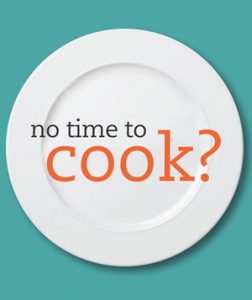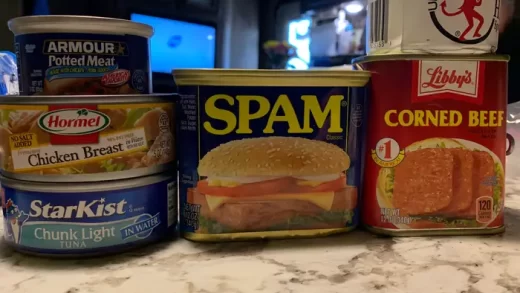One of things you hear from people who don’t cook much, who engage in typical bachelor eating behavior, is that they just don’t have time to cook. But that begs the question: do you have time to write out a check for your rent or mortgage? Do you have time to shower in the morning before work? Do you have time to put gas in your car?
 The answer: of course you do. Well, maybe we should say you make the time because you know those are things you have to do. And you should think of cooking in the same way. Cooking food and eating should be about more than just fueling your body the way you put gas in the car. It’s just as important if you want to do the things you want to do.
The answer: of course you do. Well, maybe we should say you make the time because you know those are things you have to do. And you should think of cooking in the same way. Cooking food and eating should be about more than just fueling your body the way you put gas in the car. It’s just as important if you want to do the things you want to do.
When you’re single, or even if you’re not, you have a busy life. You have to do everything yourself. And sometimes it just doesn’t seem worth the effort. But I can assure you from personal experience that it is worth it, no matter your age, your environment, your income or your living situation. Food is important. That’s why every human culture on the planet has traditions and activities revolving around food. And humans aren’t alone in that. Many animals have lives directly related to eating.
The key to cooking at home is strategy. No one wants to spend hours in front of a stove when you get home from work. No one wants to make multiple trips to the store (unless it happens to be convenient because you pass right by it on the way home). That means you need to do a little planning, put a little thinking into the effort. That’s what this blog is all about.
First, you need to realize that you can get a lot of cooking done in just one afternoon or evening a week. In that time you can make a pot of soup, put together a salad without the dressing, cook a pot of rice, beans or potatoes, all while cooking a healthy and nutritious meal. You might call this multi-tasking. A lot of cooking is waiting. That gives you an opportunity to take care of other things while you’re in the kitchen.
Next, if you have special nutritional needs, like diabetes, heart disease or a food allergy, meal planning is even more important. That means you need to have some general guidelines about your meals. Those elements include calorie counts, carbohydrates, fat content and similar nutritional values. Also, you need to make sure your meals are balanced and contain plenty of fruits and vegetables in addition to starches and protein. As we said above: food is more than just fuel. Having all of these elements under consideration will allow you to have a healthier life. And that means fewer expenses, longer life and being happy. Yes, happy. Food can greatly affect your mood. You might think that means sweets and chocolate. But actually, good nutrition makes your body happy and your brain chemistry in better balance.
A good place to start is at a nutritionist or dietician. You can probably get a referral from your doctor. He or she also might have some material to get you started. You need to take into consideration your nutritional needs. That’s where your doctor comes in. Then you have to take into consideration your tastes, how much money you can spend on food and how much time you devote to other activities. You may have to consider making some changes.
You might find the figures you come up with are rather restrictive. But there’s an easy solution to that: get moving! Exercise, even a daily walk around the block, can make a big difference in so many things. It will burn up more calories. It also burns up built up adrenaline which causes high blood pressure and tension. I know finding the time for that can be a challenge, but it’s worth the effort.


